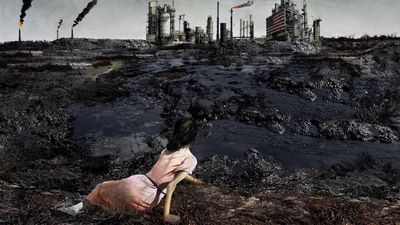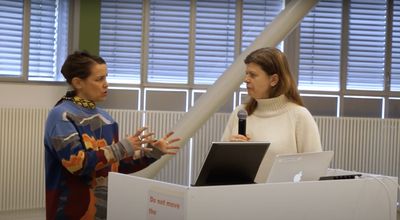The Birth of EnergyCara Daggett
Energy, work, and power are intertwined, both in the scientific definition of energy (the ability to do work), and in the political manifestation of human-fuel practices. The energy-work-power connection continues to haunt attempts to divest from fossil fuels. Fossil fuel advocates rely upon the threat of job loss and energy dependency to mobilise affection for oil, coal or gas, but many renewable energy advocates also adopt this framework in calls for a just energy transition. Doing so helps keep modern energy cultures yoked to extractivism. In this talk, I will trace the historical emergence of the relationship between energy and work, focusing upon how work came to be understood and valued as a site of energy transformation. The energy-work ethos informed the emergent fossil fuel culture, wherein technical categories of work and waste intersect with racialised, and gendered, judgments of productivity and sloth. Thinking about energy historically suggests that shifting our fuel cultures will require a corresponding shift in (post)-industrial cultures of work and Western understandings of freedom.
Cara Daggett is an assistant professor of political science in the Department of Political Science at Virginia Tech. She holds a bachelor’s degree in biochemical sciences from Harvard University, a master’s degree in international relations from the London School of Economics and Political Science, and a doctorate in political science from Johns Hopkins University. Her research explores the politics of energy and the environment in an era of planetary disruption. She is interested in questions that lie at the nexus of human well-being, science, technology, and the more-than-human world. Her work often draws upon feminist approaches to power in order to understand how global warming emerged, as well as how it might be mitigated. Daggett’s book, The Birth of Energy: Fossil Fuels, Thermodynamics, and the Politics of Work (Duke, 2019), traces the genealogy of energy back to the nineteenth-century science of thermodynamics to challenge the underlying logic that informs today’s uses of energy. The book argues that only by transforming the politics of work—most notably, the veneration of waged work—will we be able to confront the Anthropocene’s energy problem.




